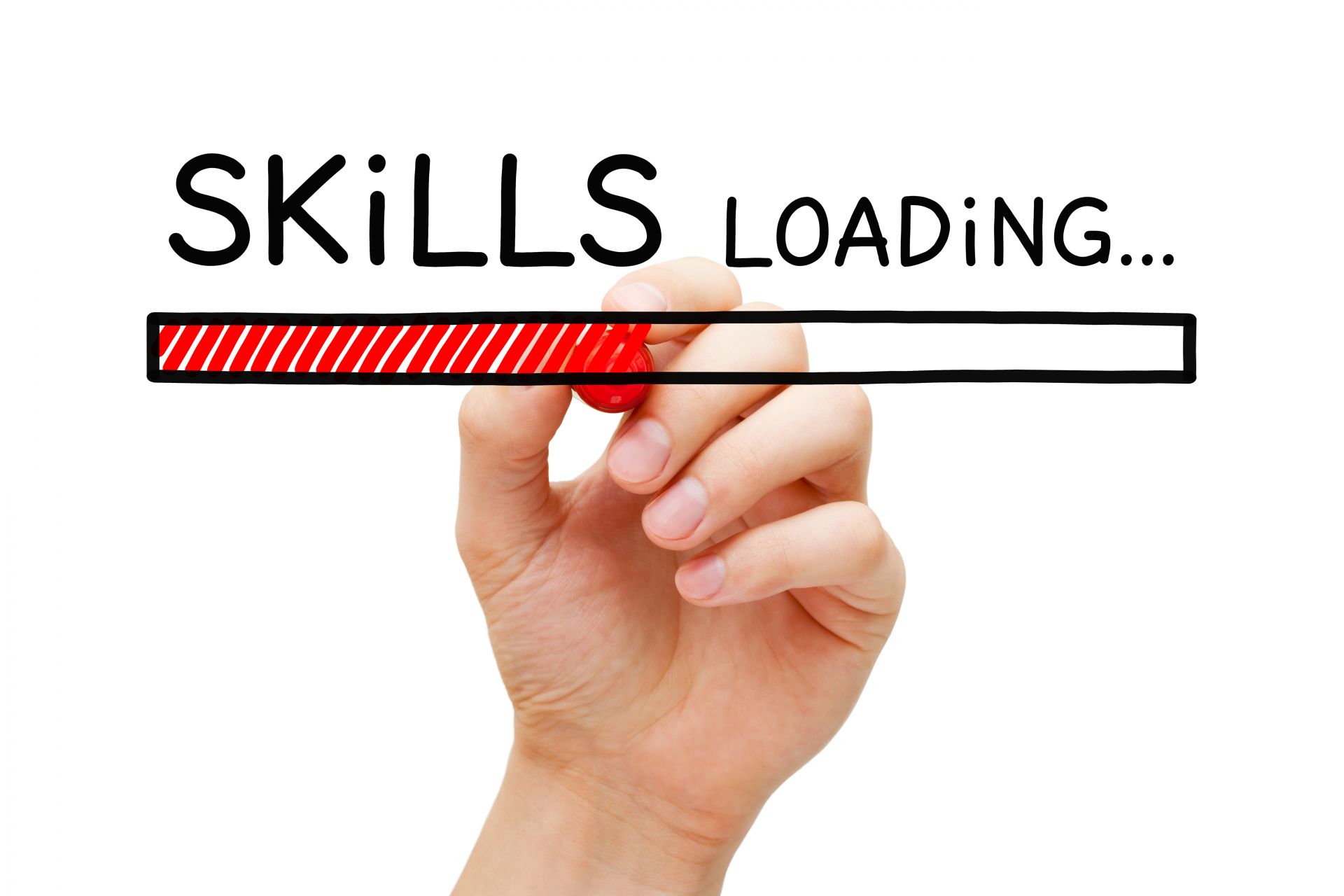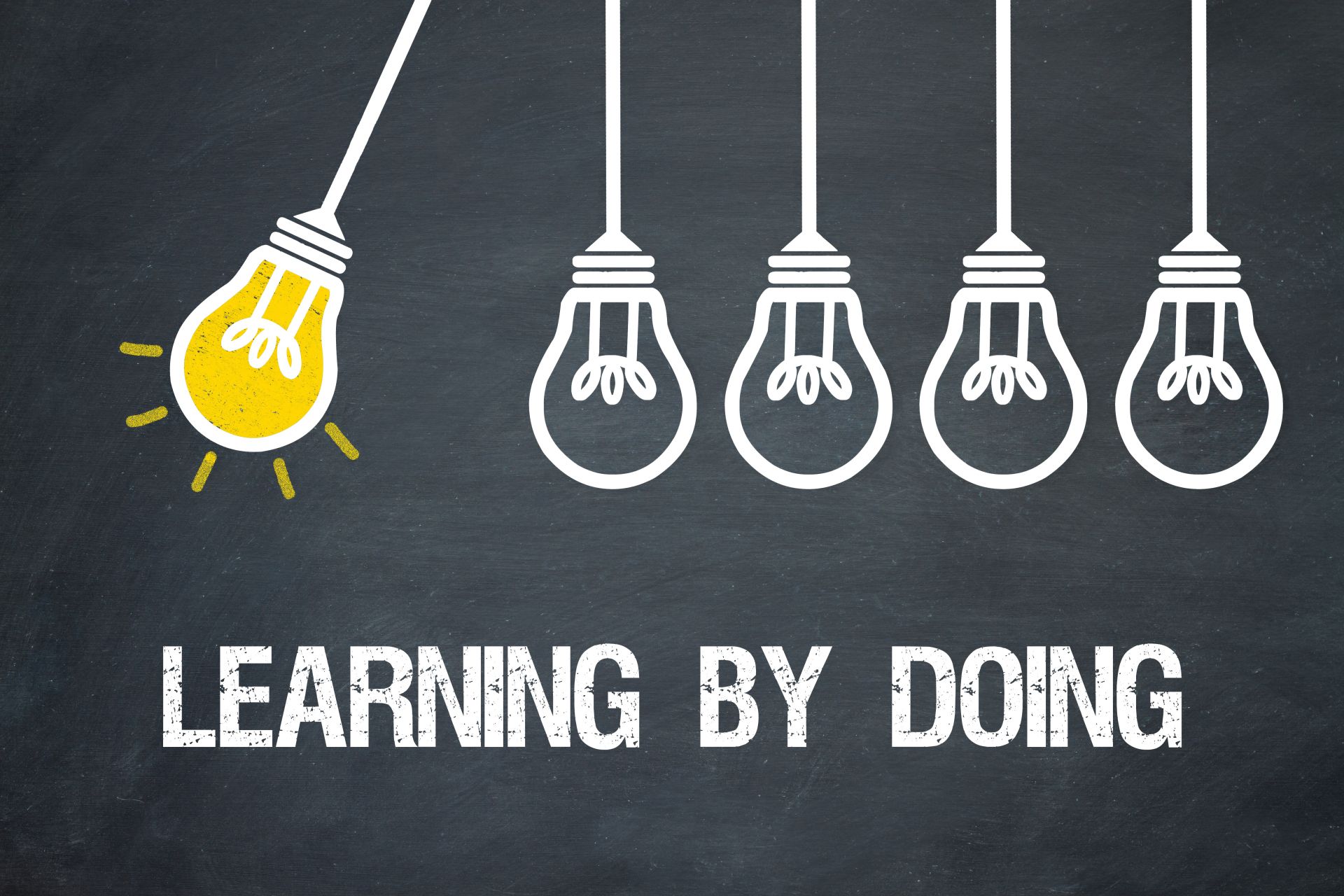
Hybrid: What skills do you need now?
Helen Bryant

Good hybrid collaboration demands new ways of working. It also means people need new skills. Communication, collaboration and decision making skills are now critical to your organisation’s success in this new world of work.
Remote and flexible work creates new challenges for employers in terms of getting work done, transparency and trust, team building and helping people manage the boundaries between their personal and professional lives.
It is also revealing skill gaps in collaboration, teamwork, communication and decision-making skills. These skills have been becoming increasingly important in recent years; however, they have now become business-critical.
Remote and flexible work creates new challenges for employers in terms of getting work done, transparency and trust, team building and helping people manage the boundaries between their personal and professional lives.
It is also revealing skill gaps in collaboration, teamwork, communication and decision-making skills. These skills have been becoming increasingly important in recent years; however, they have now become business-critical.
There is no winging it with hybrid

When we work together simultaneously, we are often unaware of the rituals and routines to move work along. The fact that most people are present means that we can quickly adjust in flight, maybe call a meeting or have a quick chat. Others can observe changes around them and adapt without ever being told.
This often suits our fast-paced work; it is easier to focus on what we are doing and spend less time thinking about how we work together. But it also encourages bad habits, too many meetings, communication by long email chains, a winging it or a last-minute attitude to managing projects or our time, all of which cause frustration and waste time.Our crisis-driven move to remote work for many was a translation of our face to face way of working into a virtual world, which meant dawn ‘til dusk Zoom meetings and many more emails.
Many teams have been exploring new approaches, but it is difficult for individuals and teams to change the old way of working for something completely new. As we face the next era of hybrid and remote working, there are opportunities to redefine what ‘great work’ looks like in each organisation and help employees build the skill-sets needed to make it work.
This often suits our fast-paced work; it is easier to focus on what we are doing and spend less time thinking about how we work together. But it also encourages bad habits, too many meetings, communication by long email chains, a winging it or a last-minute attitude to managing projects or our time, all of which cause frustration and waste time.Our crisis-driven move to remote work for many was a translation of our face to face way of working into a virtual world, which meant dawn ‘til dusk Zoom meetings and many more emails.
Many teams have been exploring new approaches, but it is difficult for individuals and teams to change the old way of working for something completely new. As we face the next era of hybrid and remote working, there are opportunities to redefine what ‘great work’ looks like in each organisation and help employees build the skill-sets needed to make it work.
High value skills for hybrid working

Hybrid work needs to be intentional; it is a world of more haste, less speed.
5 skill-sets help individuals and teams navigate a working environment when we cannot rely on the old working methods.
#1 Skills and behaviours that produce clarity, alignment and trust.
At the core of the collaborative skills is what we call CAT – Clarity, alignment and trust. This framework helps people know where they are and what is missing in how they work.
Clarity is everyone is clear on what is expected of them and knows how the team works together. It covers goal setting, delegation, and getting the critical moments of collaboration working, such as One-to-ones and meetings.
Alignment is about making the moments of collaboration work to move work forward and resolve issues quickly. Notably, having tricky conversations like feedback or influencing others can be more difficult when you are not together as often.
Trust results from the individual’s behaviours, especially being proactive, open and transparent in their work and getting things done.
#2 Essential Communication skills for everyone
Communication is a critical skill of hybrid working as there is more friction in the way we communicate, and the ad hoc catch-ups are not there as a safety net. Communication is also a habitual skill, so individual effectiveness often gets overlooked. Our experience tells us that this skill-set empowers people to connect better and solve problems faster.
Everyone needs to improve the quality of the critical conversation of work. They include giving and asking for feedback, influencing others, encouraging productive debate, resolving disagreements, and having the proper discussion in the right environment, e.g. face-to-face or virtual, voice or written.
#3 The skills to connect in a less structured world
In an environment where you don’t sit side by side every day or may not even meet people you work with, the ability to work in a network grows. People need to navigate less structured environments to connect with others.
Skills that help people fix cross-functional friction points, navigate power, and support effective and timely decision-making should be highly valued within an organisation.
#4 The ability to organise work for transparency, efficiency and effectiveness
Creating an environment of transparency in the way your people are working is essential in hybrid work. Your people need to get synchronous and asynchronous work right and use digital tools that help. For example, getting communication out of opaque emails and into topic related channels in MS Teams or Slack improves both transparency and accountability within your teams.
Focusing on getting the high-value moments of collaboration right, such as problem-solving, decision-making, and team building, can help the team cut through problems and increase team productivity and effectiveness.
The skills of personal time management are essential. Individuals need to organise their own time effectively and be prepared for the crucial moments of collaboration.
#5 Make personal learning a priority
For too many, learning is something they do when they have done all their work. Encouraging a learning mindset helps people cope with the pace of work and the environment of change in which they work. For individuals to succeed, they need to learn how to manage themselves in the hybrid world. Everyone needs to be confident at feedback so that the whole team learns faster.
Address the gap between knowing and doing

We often find the skills of collaboration, communication and how to work effectively in a hybrid world are not trained across organisations, significantly to younger team members.
There is a gap between knowing what you need to do and doing it, especially in collaboration skills when people need to get out of their comfort zone to put the lessons into practice. You need your teams to understand how to learn these skills and support to put them into practice.
Look for training programmes that target people at their career stage to increase relevance, extend beyond the classroom into doing and consider how leaders can encourage these new valuable skills and behaviours.
We are in a challenging period of change to how we all work, but we also have a unique moment for organisations to use this change to create a culture that better enables them to achieve their long term goals.Helping your people develop the skills and behaviours to work better together in this new environment will help your business grow.
There is a gap between knowing what you need to do and doing it, especially in collaboration skills when people need to get out of their comfort zone to put the lessons into practice. You need your teams to understand how to learn these skills and support to put them into practice.
Look for training programmes that target people at their career stage to increase relevance, extend beyond the classroom into doing and consider how leaders can encourage these new valuable skills and behaviours.
We are in a challenging period of change to how we all work, but we also have a unique moment for organisations to use this change to create a culture that better enables them to achieve their long term goals.Helping your people develop the skills and behaviours to work better together in this new environment will help your business grow.

Drag to resize
Copyright © 2025
Connect with me
Write your awesome label here.
Get your Free Leader's
Blueprint
Download your free PDF guide to discover the skills and strategies managers need to reclaim their time and lead high-performing teams.
Write your awesome label here.
Subscribe to my Insiders Newsletter!
Discover how 10 minutes per week can accelerate your leadership journey
Regular actionable advice and lessons on how to be the leader you want to be.
Regular actionable advice and lessons on how to be the leader you want to be.
Thank you!
